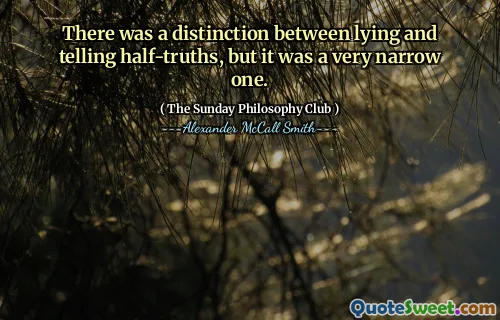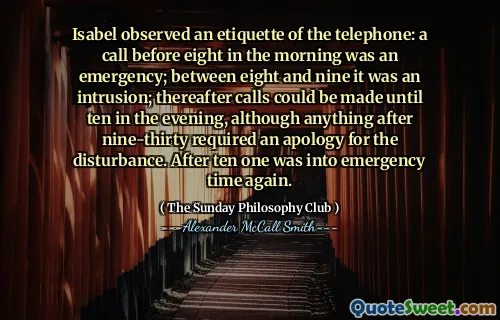
It was easy, terribly easy, to become with time a middle-aged spinster with a sharp tongue. She would have to guard against this.
In "The Sunday Philosophy Club" by Alexander McCall Smith, the protagonist reflects on the potential pitfalls of middle age, particularly fearing the stereotype of becoming a bitter spinster. She recognizes that as time passes, it can be all too simple to develop a cynical perspective and a cutting demeanor, which may alienate others and hinder personal happiness. To avoid this fate, she is determined to stay vigilant about her attitude and to cultivate a more positive outlook. This self-awareness signals her desire for connection and growth, highlighting the importance of actively shaping one’s personality rather than succumbing to negativity as one ages.
In "The Sunday Philosophy Club" by Alexander McCall Smith, the protagonist reflects on the potential pitfalls of middle age, particularly fearing the stereotype of becoming a bitter spinster. She recognizes that as time passes, it can be all too simple to develop a cynical perspective and a cutting demeanor, which may alienate others and hinder personal happiness.
To avoid this fate, she is determined to stay vigilant about her attitude and to cultivate a more positive outlook. This self-awareness signals her desire for connection and growth, highlighting the importance of actively shaping one’s personality rather than succumbing to negativity as one ages.






